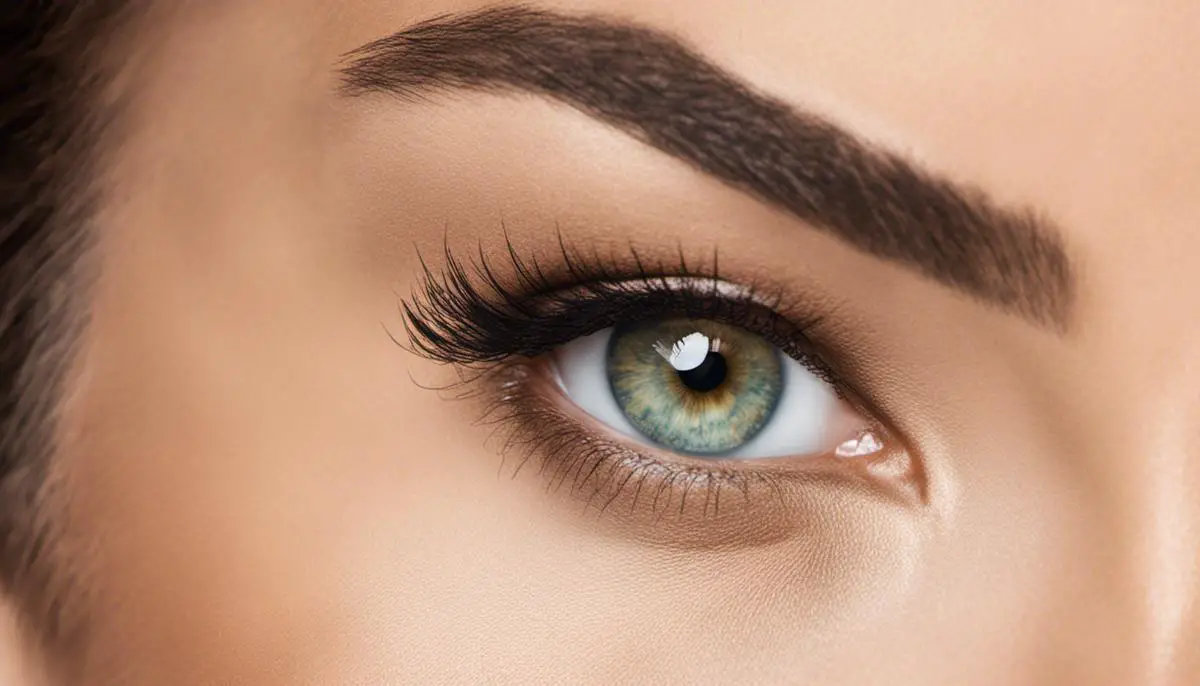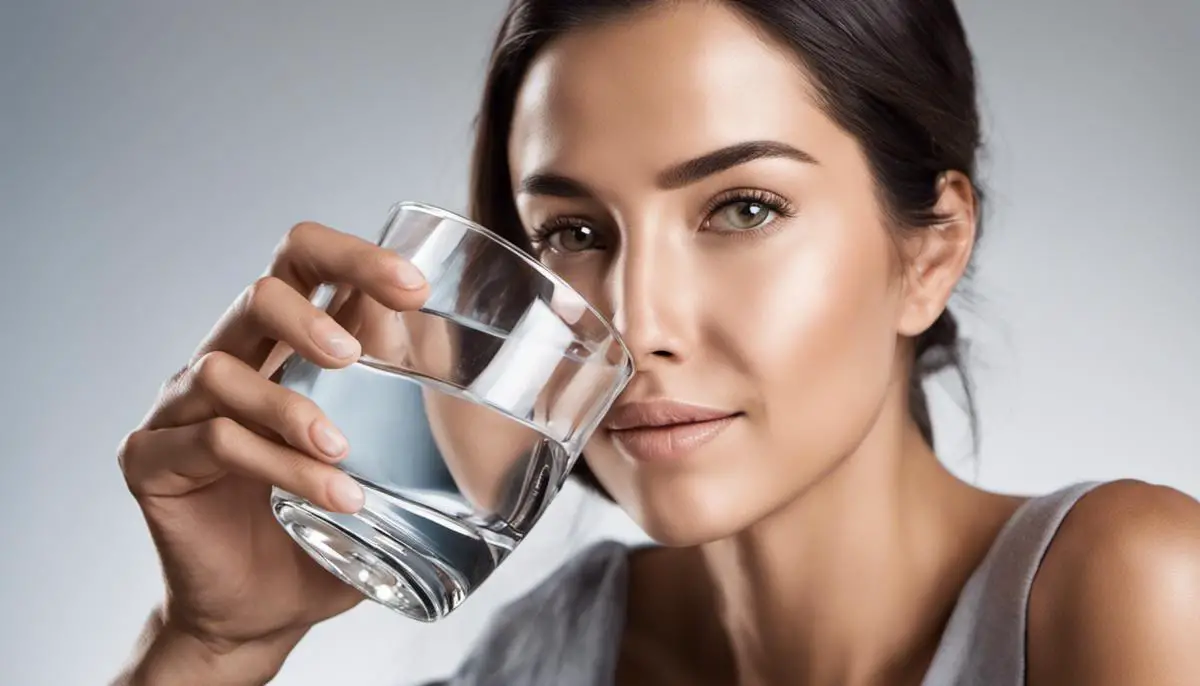In the pursuit of clear, healthy skin, we often turn to skincare products and dietary changes, but the simplest solution may already be within our reach. Water, the humdrum necessity of life, plays a pivotal role in maintaining and enhancing skin health. The significance of hydration in preserving the skin’s elasticity, texture, and glow cannot be overstated. This discussion dives into the connection between hydration and skin health, including how water aids in maintaining skin moisture, regulating pH levels, and eliminating toxins. It further sheds light on determining the right amount of water intake for you based on factors like your overall health, level of physical activity, and climatic conditions. We will also provide practical ways to ensure you are drinking enough water daily and delve into inspiring success stories of individuals who achieved significant skincare results through proper hydration.
Understanding the Link Between Hydration and Skin Health
Understanding the Connection Between Hydration and Skin Health
Research shows that hydration is crucial for maintaining skin health. Just like any other cell in the body, the skin cells need water to function properly. Sufficient and regular hydration can help the skin maintain its elasticity and suppleness.
How Water Benefits the Skin
Water serves several key roles when it comes to skin health. First, it keeps skin moisturized. When your body is properly hydrated, it helps your skin retain moisture. This is critical because dry skin is more prone to wrinkles and over ageing.
Water also assists in maintaining the pH balance of your skin. The skin has a thin protective layer on its surface referred to as the acid mantle. This layer is made up of sebum (skin oil) and sweat, and its pH ranges between 4.5 and 6.2. Maintaining this acidic pH is vital for skin health as it protects the skin from harmful bacteria and pollutants. Consuming an optimum amount of water aids in this process as it helps to balance the pH level of the whole body.
Importantly, water helps the body in eliminating toxins. When you’re well-hydrated, your kidneys work efficiently to remove waste and toxins from your body. Since your skin is also an excretory organ, sufficient hydration assists in effectively eliminating skin toxins, reducing the likelihood of acne and other skin problems.
Negative Impacts of Dehydration on Skin
On the flip side, dehydration can have damaging effects on skin health. When the body is dehydrated, it prioritizes directing water to critical organs such as the heart and lungs. The skin, not being one of these priority organs, may not receive a sufficient water supply leading to dry, flaky and tight skin that is more prone to wrinkling.
Moreover, without enough water, the body’s toxin elimination process may slow down. This can lead to toxin buildup which may worsen skin disorders like acne, dermatitis, and psoriasis.
Recommended Water Intake for Healthy Skin
While water needs can vary based on factors like age, sex, weight, and level of physical activity, a common recommendation is to consume at least 8 glasses of water per day for general health. As for skin health, there’s no set rule, but ensuring your body is well hydrated generally should reflect positively on your skin.
It should be noted that hydration is not just about the quantity of water consumed but also about the quality of this intake. In other words, certain beverages like alcohol and caffeinated drinks can cause dehydration and therefore, might not be the best options for skin health. Drinking plain water and eating water-rich fruits and vegetables is the most efficient way to hydrate the body and, in turn, the skin.
Overall, understanding the connection between hydration and skin health and aiming to maintain sufficient hydration can greatly contribute to achieving and maintaining clear and healthy skin.

Determining the Ideal Daily Water Intake
Exploring Factors that Influence Your Daily Water Needs
When deciding how much water you need to stimulate clear skin, it is essential to understand that there isn’t an exact predetermined quantity that suits everyone. Several variables factor into the amount of water you should be drinking daily. These include your overall health and wellness, your level of physical activity, and the climate in which you live.
Individuals with certain medical conditions, such as kidney or heart disease, may need to adhere to a specific fluid restriction. Speak with your healthcare provider if you have a health condition that may affect your hydration requirements.
If you’re an athlete or a regular gym-goer, or if you engage in any strenuous physical activity, you’d need to consume more water than a less active individual to replace the fluid you lose through sweating.
In addition, the climate plays a substantial role. Individuals residing in warm or dry climates require more water as dehydration can occur faster.
Bodyweight and Water Consumption – How is it Connected?
Typically, a good starting point for water intake is often linked to bodyweight. Some experts recommend drinking half your body weight in ounces of water every day. That means if you weigh 150 pounds, you should aim for 75 ounces of water daily.
But remember, your daily water requirement can skyrocket depending on your physical activity and climate conditions.
Balancing Personal Goals versus General Health Guidelines
General health guidelines from The U.S. National Academies of Sciences, Engineering, and Medicine recommends a daily water intake of about 3.7 liters (or roughly 13 cups) for men and 2.7 liters (or roughly 9 cups) for women. This includes total water intake from all beverages and foods.
But considering these guidelines are designed to cater to the average healthy individual, it is prudent to balance these recommendations with your personal hydration needs. For those seeking clear, radiant skin, a slightly increased intake might be beneficial.
Hydrated skin appears plumper, more luminous, and healthier. Keeping hydrated internally can alleviate dry skin and prevent skin conditions that often come with it like redness, itchiness, and sensitivity and allow for overall better skin health.
The key to this is not drinking copious amounts of water in one go but rather spread it throughout your day for your body to utilize it better.
Signs of Proper Hydration
Urinating 4-7 times a day, light yellow to clear urination color, feeling generally hydrated, and having a healthy complexion are all good indicators of proper hydration.
Remember, exceeding your hydration needs does not necessarily improve skin or health and potentially lead to conditions like water intoxicity.
Always try striking a balance. And, all good things take time, so don’t expect your skin to improve overnight. Commit to staying hydrated, maintain a healthy lifestyle, and you’ll witness your skin thanking you.

Photo by brettwharton on Unsplash
Methods to Increase Water Consumption
Set reminders to drink water
To ensure you are getting enough water for clear skin, setting reminders can be a helpful tool. There are many apps available on your smartphone that can remind you throughout the day to drink water. You could also set alarms or reminders on your phone or watch to drink a glass of water every hour or two. Another method is to mark levels on your water bottle with times to serve as a reminder.
Carry a water bottle everywhere
An effective way to increase your daily water intake is by always carrying a water bottle with you. Choosing a large, reusable water bottle not only helps you measure how much water you’re consuming but also serves as a constant reminder to continue hydrating.
Choose water over other drinks
Whenever you have the choice between water and any other beverage, try to choose water. Not only is it healthier, but it also has the bonus effect of hydrating your skin. By choosing water over other options such as soda, coffee, or alcoholic beverages, you can significantly increase your water intake.
Drink water before each meal
Make it a habit to drink a glass of water before each meal. This helps in two ways: it will help remind you to drink water, and it can also help you eat less by making you feel full. This ensures that you are hydrating your body and benefiting your skin.
Eat hydrating foods
Eating foods rich in water content can also contribute to your hydration levels. Fruits and vegetables like cucumbers, watermelon, strawberries, and bell peppers are packed with water and can therefore increase your daily water intake. Soups, stews, and broths are also a high source of water.
Flavor your water
If you find water too bland, consider adding a slice of lemon, lime, or cucumber, or drinking naturally flavored water to make it more enjoyable. Avoid sweetened beverages since added sugars can offset the hydrating benefits.
Drink a glass of water after every bathroom break
Make it a habit to drink a glass of water after each bathroom break. This ensures that you are consistently replenishing your body’s water, maintaining hydration and promoting clear, healthy skin.
Stay active
Regular exercise encourages fluid consumption. Even if you’re not thirsty after a workout, make it a habit to drink water before, during, and after exercise. This active lifestyle will inherently increase your water intake and provide additional benefits to your overall health.

Real-World Examples and Success Stories
Real-World Examples and Success Stories
A myriad of anecdotal success stories and scientific research underline the importance of proper hydration for maintaining clear, healthy skin. Let’s take a couple of real-world examples.
Jessica Smith, a lifestyle blogger from Florida, embraced the “8×8” method for better skin health. She drinks eight 8-ounce glasses, which equals about 2 liters or half a gallon of water each day. After a month of consistently following this routine, she reported a notable improvement in reducing her acne breakouts, and her skin appeared more glowing and less oily. Smith’s routine underscores the common assertion that maintaining consistent hydration helps in flushing out toxins and maintaining skin elasticity.
Another example comes from health enthusiast Kyle Brown, who swears by the cumulative benefits of water intake for clear skin. Living in California, Brown aimed to stay hydrated due to the hot climate and his active lifestyle. His strategy involves starting the day with 20 ounces of water upon waking, followed by consistent intake throughout the day. The result? Brown claims his hydration-focused routine keeps his skin blemish-free and supple.
Applying The Lessons To Your Personal Routine
Encouraged by such success stories, a starting point for you could be the “8X8” rule that Jessica Smith successfully applied. This rule is easy to remember and ensures that you drink a decent amount of water each day. Consider carrying a refillable water bottle so you can monitor your water intake easily.
For people with an active lifestyle, like Kyle Brown, you may want to start your day with 20 ounces of water upon waking, and then continually hydrating throughout the day. This routine ensures your body gets enough water to replace any lost through activity and helps maintain skin health.
Remember, these are general guidelines, and the actual amount of water consumption can depend on various factors such as your age, sex, weight, physical activity level and overall health.
Ultimately, drinking water is just one part of a holistic approach for improved skin health. Complement it with a balanced diet, regular exercise, ample sleep, and good skincare habits for a comprehensive approach towards achieving clear, healthy skin.

The journey to clearer skin can be confusing, but staying well-hydrated is a strategy that anyone can employ. Using the knowledge accumulated about the fundamental link between hydration and skin health, you can customize your daily water intake to suit your individual health and lifestyle circumstances. Incorporating practical methods to boost your water consumption can make this task less daunting. Moreover, the success stories of people who improved their skin health with hydration serve as a motivational tool, demonstrating that a dedication to drinking water can lead to remarkable skincare outcomes. By making hydration a key part of your daily routine, you’re not only investing in healthier skin but also promoting overall well-being.
